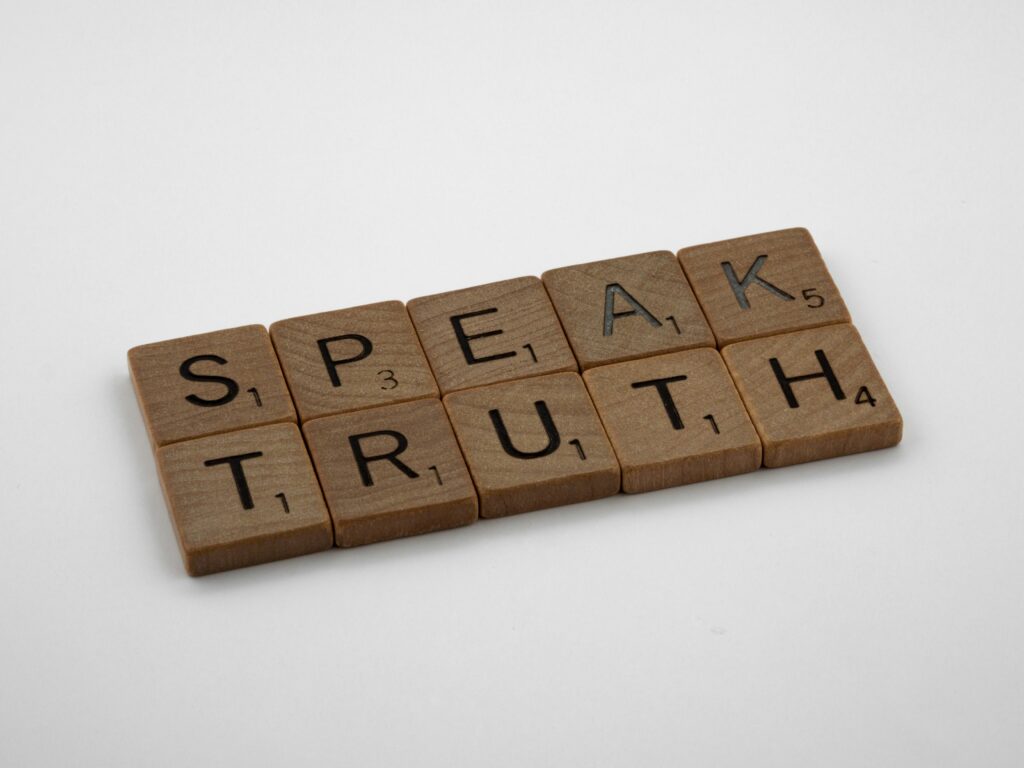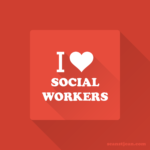I hope that you are having a great week.
As promised, I want to tell you about that light at the end of the tunnel I mentioned. The truth is that this light isn’t on the outside, it’s on the inside. When we find that light in ourselves, we become truly free- free from chronic anxiety and worry, free from the pressure of others’ expectations to perform, and free from the continued denial of our own joy.
Now stay with me…I know that last paragraph may seem a little new-agey. A little puffy. Sort of pie in the sky-ish. If you’re reading my blog you’re a little suspect- I get it. But frankly I don’t know how to put it much differently than that. However, let me expand it for you.
What I am about to describe is the one belief on which most helping professionals’ wellness rests. This is the best I have. When this single belief truly shifts, the whole game changes from an emotional health standpoint. I hope you’ll let me explain myself over the next few paragraphs.
I’m a big faker. I always have been. I always describe myself as a duck on a pond. Have you ever watched a duck? Outwardly they look very serene and calm, but underneath the surface of the water, their little webby feet are frantically thrashing around. What’s happening underwater is the truth of the matter, not the seemingly-peaceful exterior.
As a social worker I have been absolutely terrified in meetings, but have learned how to appear calm and collected. Those faker skills actually took me pretty far. What no one ever taught me, however, was that this chronic disconnect between our emotional state on the inside and what we communicate and do on the outside (along with some pretty serious misbeliefs, ongoing stressors, and general lack of self care) were literally killing me. They were burning up my vital and precious supply of life energy.
Where did this mess come from? What caused this chronic state of life-sapping anxiety and stress? That’s actually a very long and nuanced story- a story that I have shared parts of in some of my blog posts and that is woven into my online burnout and trauma recovery course. Yet in a nutshell I found I could boil this emotional agony down to a simple and sinister misbelief, and some faulty logic, presented in three parts:
- I must perform perfectly to be worthy/loved/happy
- I am inadequate to perform the way I need to, therefore:
- I am not worth anything or deserve good things
That’s it. 90% of my job (and life) anxiety and depression is wrapped up in this faulty line of thinking. My guess is that many of the rest us who work in the helping professions are caught in a similar cognitive dynamic. Many of you already know that according to the tenets of cognitive-behavioral therapy, our irrational beliefs drive our negative moods. In order to fix those troubling emotions we must seek out their root cause and squash it. Let’s pick these off one by one:
- I must perform perfectly to be worthy/loved/happy
This belief is very basic to Western thought. It is a message that is overtly or covertly encapsulated in nearly every sport, every competition, most love stories, and in the ethos of most nation-states. It is a fundamental understanding that there are winners and losers, and by gosh, you had better be the winner. In addition to the idea of “perfection-as-winning” is the notion of “perfection-as-flawlessness”. We have this constantly modeled for us: in TV shows where no one ever stutters and in magazines where everyone is perfectly beautiful. We also see this on facebook. Most status updates are happy and shiny and depict joyful and fully realized people who are living their dreams.
As social creatures, we cannot help but compare ourselves to others. This is pretty natural. The trouble for us comes when we experience the greater pressures of being inducted into a large social service agency or when starting a high-demand career. Think about what it was like when you went from elementary school to high school. In one moment, you went from the top of the pile (meaning you were the oldest, largest, fastest, smartest, most powerful) to the bottom. Suddenly, everyone else seemed more capable.
You know the exact same thing happens with new workers too. Maybe they’ve just finished a four year degree. By our graduation year most of us had a good system for getting our assignments finished. We probably had a good sense of the “game” of school. Once you get the rules figured out, stress levels go way down. Having the rules is a form of control that makes our lives easier.
But then we get a job at a hospital or as a child protection worker or as a trauma counsellor. Maybe in some other demanding field that requires high performance. Suddenly the game changes. Now the rules are different and everyone around you knows the new game better than you. The pressure to measure up is tremendous. New workers put up with all kinds of abuse, unfairness, and just plain awfulness in the name of fitting in and being seen as a competent professional. In many cases these new workers are saddled with huge workloads by desperate agencies. They have the academics, but they still need time to grow into the job. Their expectations for mentoring (that were often met in school) are often not fulfilled.
Where new workers really take a hit is when they start seeing real clients. Some have never worked in a helping profession before. Think about this. The helping industries typically hire recent graduates into jobs with a heavy emotional demand, even if they have no experience. This is like asking someone to run a marathon even though they’ve only ever taken a few short jogs. They can’t know how well they will do- everything has been theoretical up until now. But now reality is here. In summary, If you are a newer worker but unwittingly maintain the belief that you must perform at an expert level to feel deserving, then you are in trouble! “Anxiety” will soon be your middle name.
- I am inadequate to perform the way I need to
In most helping fields the clients don’t change. Or maybe they change in a way or at a pace that is different than what we expect. The work of social work is often drudgery. The pressure from management is usually subtle but high nonetheless. After a few months slogging in the field, the gap between the demand of the job and the capacities of the professional quickly become apparent. We can start to experience a major shift in our self-concept and identity. We were optimistic going in because we were hopeful that we had what it takes, but now we have seen how we fall short, and it’s painful. One recent study (Gibson, 2014) suggested that many social workers would rather face high risk of physical assault rather than participate in a performance review!
Feeling inadequate doesn’t always mean feeling really bad about ourselves. Sometimes the idea that we are not performing well enough is an intolerable thought. Our taxed egos can’t handle it. Often we simply start to feel bad about our clients, about our colleagues, or about the world in general. Becoming disillusioned and jaded is very common for helping professionals. In child protection, some places experience a yearly turnover of 70%! In many of these helping offices, morale is very low.
This sense of professional incompetence is so common that Maslach has included it as a major component of burnout. But here is the rub….no one is good enough to do the job. No one. The thought that you can solve even a quarter of your client’s problems is a glaringly painful error. No, you’ve been tricked by years of TV shows with happy endings and dreams of “helping people”. I am not saying that you can’t make a dent in the lives of others. Rather, that fledgling professionals’ expectations are not yet calibrated with reality. Unfortunately, what results in the hearts of nascent workers is the idea that there is something lacking in them rather than in the system they’ve been plunged into.
In turn, what results from this misbelief- the idea that we are deeply inadequate- are feelings of grief, shame, and insecurity. Grief comes from the loss of the image we had of ourselves, about what we thought the work would be like, and about the nature of the world. Maybe we had this picture of ourselves standing in the gap and helping people or of forming strong emotional connections with clients as we help them with the difficulties of life. But then as we see our work for what it is we realize that those visions were just hopeful fantasies. When you add a strong sense of inadequacy to a perfectionistic or performance-based character, look out! This can become a hotbed for irrational fears and insecurities.
- I am not worth anything or deserve good things.
This is the result for many of us. If we must perform to have value, and our level of performance is inadequate, then the natural conclusion is that we must not be worth very much. Of course many others don’t even reach this stage- they either get out or are able to see this misbelief for what it is- a big, stinky lie.
You may be thinking, “Sean, that all sounds a little dramatic. I’m not sure that I think all of that stuff.” Fair enough, you may be right. I truly hope you don’t. Everyone is different. But let’s consider the emotions for a second. Why do helping professionals feel anxiety? Why do they feel grief and loss? Why do they feel disillusionment? Most feelings of anxiety come from some sort of threat, real or imagined. I contend that the biggest threat we face as helping professionals is actually a fear of being unable to handle difficult client situations. It may also be a fear of what clients will say to us, a fear of what our supervisor will think of us, or a fear that we will be shown to not have the solution to the problem in front of us. These fears all stem from one place- the greater threat that we might be revealed as incapable and therefore unworthy.
If anxiety is based in the fear that will be unable to perform, then depression is based in the (untrue) realization that we didn’t have what it takes to win. But as I said, it’s a rigged game- nobody wins.
Okay, let’s turn the corner. I don’t know about you, but I am starting to feel depressed just writing this (though I know that some of you guys live for this heavy stuff- that’s why you do what you do). So what is the solution? Where is that light I promised? The light is actually the result of a standoff. It is the product of standing your ground, pushing back, and fighting the lies with the truth.
Remember how CBT works? We are supposed to confront our misbeliefs with a rational belief. That doesn’t mean we fill our heads with puffed-up positivity and false flattery- no, we cannot combat self-told lies with equally untrue self-platitudes. Our minds are too smart to put up with self-beliefs that aren’t true- whether nice or nasty. So let me offer you the belief that I think leads us to the light. Ready?
“I am a mess, but I am enough”
This belief has two parts. Let’s consider them one at a time. “I am a mess” is not meant to be negative or pathologizing, but it is instead meant to suggest a sense of humility or groundedness when referring to one’s own capacities.
One fellow social worker took issue with the term “mess”, saying that it sounds too self-condemning. But really the word is meant to be a bold affront to the facebook-fueled “I have it all together” nonsense that we often feel compelled to post. The statement “I am a mess” simply means that we are human beings and therefore we have rough edges. We are forgetful. We don’t always make sense and we’re not always logical. We have feelings. We get mad at clients. We can be judgy. We can be selfish. We are works-in-progress and will always make mistakes. And that’s ok. No really, it is. You are allowed to be who you are. You don’t have to live up to your facebook posts to be worthy of acceptance.
The “messy statement” also means that it is a crazy idea that we could somehow be equipped in advance to work in social services. We’ve brought a knife to a gunfight. We have stepped into a raging inferno with a water pistol. How could this somehow reflect on us? We hold this little light inside of us, not a laser beam. That light can do a lot of good, no doubt. But our lamp only lights the way for ourselves and maybe if we’re lucky, a few others close by.
The magic is that when we adopt this humble stance, we find a kind of freedom. This freedom comes from letting go of the claims of “expert” and renouncing an “all knowing” attitude. Think about what it means to possess something. I used to give money freely to the poor when I had nothing. I could sit with $4 in my bank account and feel totally secure. But now that I am relatively flush, I think about my money in a much more guarded way. I fear losing it to bad investments. I fear that I won’t make enough. I used to rent and didn’t care much about the apartment I lived in. I knew I was just borrowing it. Then I bought a house and everything changed. Owning a house came with some prestige, but the cost was that I am ultimately responsible for each bill and every leak, and I therefore fear that something will happen when I am away. The things we own own us back.
The same holds true when acquiring professional stature or a reputation. If you are known for being a fit, sporty person, the pressure is on to stay fit and to win at all the sports you play. When we become social workers or counsellors and are given positions of esteem or great responsibility, we can find ourselves equally subservient to the demands of the maintenance of those positions. In other words, we must perform each time, perhaps not primarily for the good of our client, but in order to satisfy the persona that we seek to uphold.
And that’s exhausting. It’s hard to keep adding fuel to a light that isn’t supposed to burn so brightly for so long. I remember when I was deep in the child protection trenches and I started longing to drive a produce truck again, like I had decades prior. I wanted to live a simple existence again. What I didn’t realize was that my ego was blocking that simple existence, not my station in life.
The best helpers tend to take a “not knowing” stance. This is a place of humility that invites people in. I remember a time once when I rambled on to someone about some fancy social theory. I wanted to impress him with my vast knowledge and show him that I was a competent academic. Later on, I learned that he had literally written the book on the stuff I was spouting off about. But he never said a word. He never corrected me. He never showed me up, though he could have. He could have out-shone me in that moment. But he just listened. Afterward when I learned the truth, I was deeply moved by his self control and his graciousness. During our interaction he stood free in his “non-expert” stance, yet I was enslaved by a need to come across a certain way.
So I say: accept the mess. Don’t take yourself too seriously. When the storms come, your humility will protect you. And if it doesn’t, then your humility will allow you to recover much more quickly because your ego cannot be dealt a fatal blow. When you keep your feet on the ground, metaphorically speaking, you can never fall too far. Remember: “I am a mess, but I am enough.”
Let’s look at the second part of that light-giving statement: “…but I am enough”
The fact is that you ARE enough. Not only are you enough, but you are so very and deeply precious to us. Your life matters profoundly. Your value comes from just having shown up. You have what it takes to make a difference- maybe not in the same way your co-worker does but in a way that is unique to you. You have been blessed with the gifts and talents needed for you to get by. We don’t want what you know. We don’t want what you can do for us or how you can perform. We just want you, as you are. You are the gift.
Now I can am able to say these things because I can see the good in you. As a third party observer it’s obvious to me. I could go all day! But, alas, that’s not enough. You see, YOU need to see the good in you. You must believe and embrace the truth that you have value even when you feel like a failure. You have worth even when you suspect (or are quite confident) that your efforts just aren’t enough to bring about the changes you desire (in yourself or in your client).
I have watched so many new social workers crash and burn because they couldn’t get their heads around one or both parts of the statement, “I am a mess, but I am enough.” Sometimes new professionals come in with something to prove. Sometimes they just have really high expectations about how much they will be able to achieve with clients. Other times, new workers start well, but soon succumb to extreme agency pressures or begin to recognize the gravity of their role and begin to take on burdens that aren’t theirs to carry.
My hope for you is that as you walk through your vocational life, you will be reminded that superheroes are a myth. There is no superman. No one is bulletproof or can leap tall buildings with a single bound. Our outward capacity is minimal- we are, after all, mere mortals. However in spite of our weakness, we can be light-keepers. You can humbly offer the little light that is inside of you.
You are enough.


 Last month I promised to address each of the five “secret” factors that take child protection workers out at the knees. You can go ahead and read that
Last month I promised to address each of the five “secret” factors that take child protection workers out at the knees. You can go ahead and read that  I love social workers. I love their heart for the work. I love their drive and energy. I love how they take responsibility for problems they didn’t create. Social workers are awesome. Yet according to the stats, the average life expectancy of a child protection social worker is only 14 months.
I love social workers. I love their heart for the work. I love their drive and energy. I love how they take responsibility for problems they didn’t create. Social workers are awesome. Yet according to the stats, the average life expectancy of a child protection social worker is only 14 months. Think about a scoop of ice cream sitting in a cold dish with hot chocolate fudge oozing down the sides. Can you taste it? You may be salivating already. Imagine that you are hiking at the grand canyon and that you are cautiously stepping toward the edge. You can see straight down to the river valley 4000 feet below. Did your feet start to tingle? Your rational mind knows that you are at your desk or on your phone sitting in your car, but your body doesn’t know that! It’s already preparing to hold onto some little tree should you spill over the edge.
Think about a scoop of ice cream sitting in a cold dish with hot chocolate fudge oozing down the sides. Can you taste it? You may be salivating already. Imagine that you are hiking at the grand canyon and that you are cautiously stepping toward the edge. You can see straight down to the river valley 4000 feet below. Did your feet start to tingle? Your rational mind knows that you are at your desk or on your phone sitting in your car, but your body doesn’t know that! It’s already preparing to hold onto some little tree should you spill over the edge. Trouble ensues when we know that the story is
Trouble ensues when we know that the story is